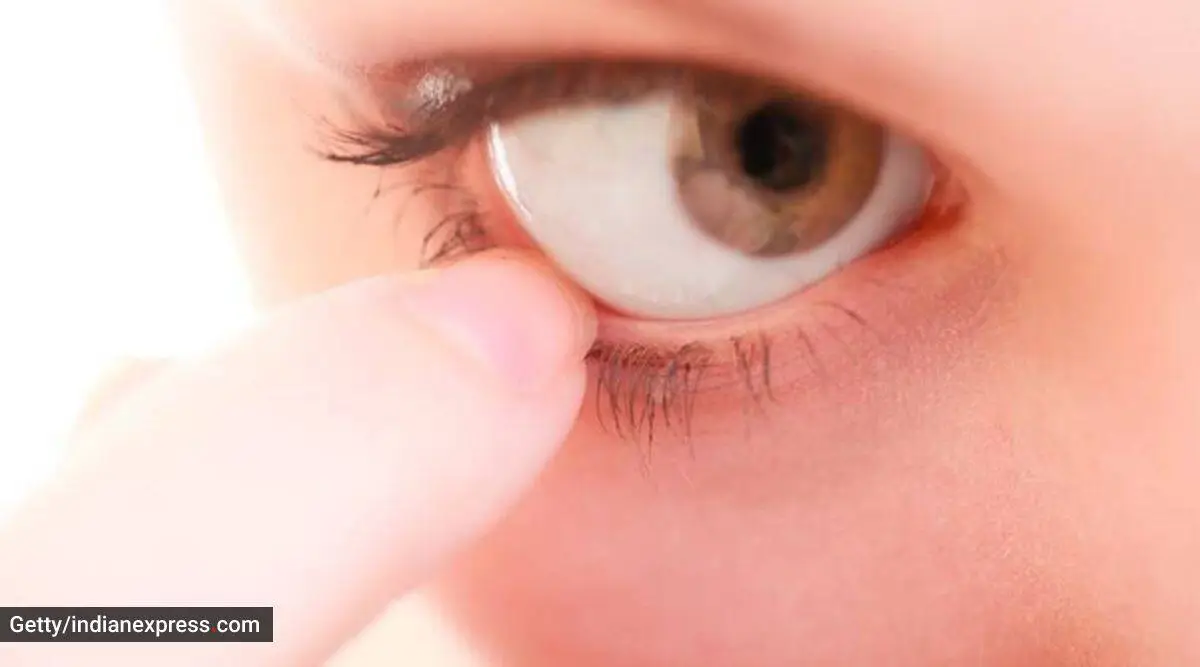 Kids with a family history of this cancer or a sibling who has been affected have a 50 per cent chance of contracting retinoblastoma.
Kids with a family history of this cancer or a sibling who has been affected have a 50 per cent chance of contracting retinoblastoma. When three-year-old Shami had a fungating mass protruding from his right eye, his parents rushed him to hospital. They didn’t realise that the white reflex in his right eye, which first appeared when he was five months old, was the root of this blinding problem. Siddiksha’s parents noticed a squint in her right eye when she was three but thought it to be a natural condition and never consulted a doctor. None of the parents realised that an aberration or a white reflex were early signs of retinoblastoma or eye cancer, which is being increasingly found in children.
“Retinoblastoma is the most common eye cancer in children and every year an estimated 1,500-2,000 of them are affected, accounting for almost a fourth of the world’s disease burden. But with timely diagnosis and prompt treatment, more than 95 per cent of these children are cured,” says Dr Sima Das, Head Oculoplasty and Oncology Services, In-charge Medical Education Department, Dr Shroff’s Charity Eye Hospital. She treated both the children. Shami had to undergo multiple cycles of chemotherapy, surgery, radiotherapy and laser therapy. Siddiksha had to lose one eye as she underwent enucleation surgery. After four weeks, she was given a customised prosthetic eye so that she could resume her routine activities. Eye removal unfortunately is needed for children with advanced tumour but with appropriate prosthetic rehabilitation, they can mingle with their peer group normally at school.
How frequently does retinoblastoma affect children?
Retinoblastoma is the most frequent eye cancer among children that affects the retina. About one in 15,000-18,000 children is likely to be affected by it. Kids with a family history of this cancer or a sibling who has been affected have a 50 per cent chance of contracting retinoblastoma.
Best of Express Premium
Which age group is most likely to suffer from it?
Typically, children under five years of age are most vulnerable. Rarely does this affect older children. It is unusual to find this cancer in adults.
How can it be cured?
With timely and early diagnosis, it is possible to treat this cancer completely. If left untreated, this cancer can turn fatal. In the early stages, this cancer is usually treated with laser and chemotherapy, saving the life, eye and vision of most children. Advanced stages need intensive treatments like surgery. Unfortunately, this involves removal of the eye with a loss of vision. Newer treatment modalities like intra-arterial chemotherapy and plaque brachytherapy can save the eye in children whose cancer is in an advanced stage.
What are the stages?
Retinoblastoma typically starts as a tiny tumor on the retina and grows in size fairly rapidly to damage the eye and vision if left undetected. In early stages, the tumour remains confined to the eye and can be treated completely. If left untreated, the tumour can spread to other parts of the body like the brain, bones and lymph nodes.
Can you explain the care protocol?
Retinoblastoma can be easily diagnosed by an eye specialist through a routine retinal examination. The earliest symptom of this cancer is a white glow in the eye and any child with a white reflex in the pupil should consult a specialist. Sometimes, squinting of the eyes or decreased vision can be early signs, too. Retinoblastoma is treated by an eye cancer specialist, who might conduct a detailed examination by anaesthetizing the child. Other investigations like MRI scans and ultrasound are also done. Children needing chemotherapy will be evaluated by a paediatric oncologist. Surgery is recommended in advanced stages apart from intra-arterial chemotherapy and plaque brachytherapy.
How would you explain this cancer to a layman?
A white glow or a reflex in a child’s eye is usually the first sign of this cancer. Sometimes this white reflex can be noted in photographs. In the early stages, this cancer can be asymptomatic except for this white glow. Hence parents or caregivers should contact an eye specialist immediately. This cancer is completely curable if detected in time. Even after treatment is completed, a regular check-up with the eye cancer specialist is necessary to avoid recurrence. The chances of the tumour returning reduce considerably as the child grows older.
- The Indian Express website has been rated GREEN for its credibility and trustworthiness by Newsguard, a global service that rates news sources for their journalistic standards.

